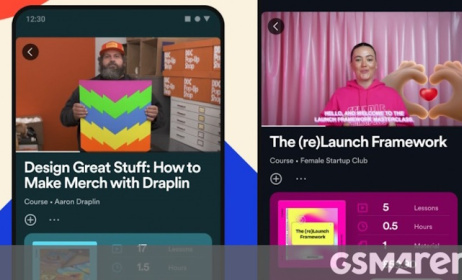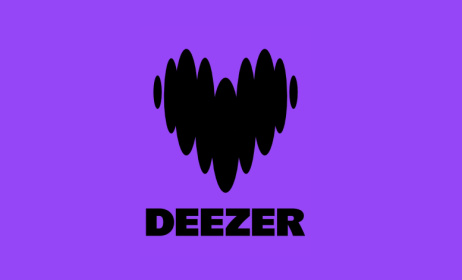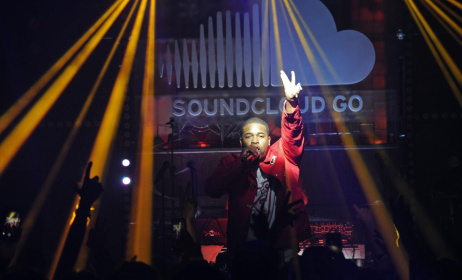Linkfire’s Maritt Jensen talks data, music tech and strong African labels
A short while ago, the global music and entertainment marketing platform Linkfire announced its Ghana office as part of its efforts to expand its presence in sub-Saharan Africa. The company, which also recently acquired major rival SmartURL, says the move forms part of its goal of helping to build infrastructure that benefits the music marketing and promotion process on the African continent, whose music industry is estimated to reach a cumulative annual growth rate of 10 to 14% between 2021 and 2025.
 Linkfire regional manager for Africa Maritt Araba Biney Jensen.
Linkfire regional manager for Africa Maritt Araba Biney Jensen.
Sub-Saharan Africa boasts more than 1.2 billion people and has become an undeniable hub for pop music on the continent. Entertainment industries in the region are estimated to enjoy a 10% compound annual growth rate by 2025. The increase, industry watchers say, has a lot to do with a growing younger population and internet penetration.
Maritt Araba Biney Jensen, Linkfire’s regional manager for Africa, spoke to Music In Africa about the company’s decision to set up in Ghana. She explains how African artists today are no longer only addressing a local audience, but an increasingly global audience. To cater to these positive trends, artists and labels need to increasingly use and invest in tools that can help them succeed on a global scale, she says. She also discusses how to better harness opportunities in Africa's music landscape to ensure better representation, as well as the value of data and tech to the industry.
MUSIC IN AFRICA: First of all, congrats on your new role. If you were looking back in five years’ time, what would you be happy to have achieved?
MARITT ARABA BINEY JENSEN: To add on to Linkfire’s product in a way that fits the main markets on the continent and establish some strong and sustainable partnerships. We are looking to increase the number of visitors exploring music through Linkfire across Africa while supporting the music industry with data.
What misconceptions do you think people have about Africa’s music industry?
That it doesn't exist. But music is in all of us, and just like any other location, there are millions of young, talented artists who aspire to be well known for their music one day.
Also, there’s an assumption that people in Africa don’t want to pay for the full price of streaming music. We’ve still yet to see whether that’s true or not, and we’ve yet to see how the global streaming platforms are actually doing here on the continent.
What are your observations about music marketing strategies by Ghanaian artists, and what impact do you expect Linkfire’s recent expansion into Ghana will have in the next few years?
The music marketing strategies by Ghanaian artists are a combination of offline and online marketing, combined with a lot of branding tailored to the Ghanaian market. I expect Linkfire to power digital solutions made for the market and the industry, that can both fuel the consumption on the continent as well as worldwide. We’re also looking to help listeners on the continent discover music on their preferred platform. Finally, we plan to give insights to foreign companies on how to market their music in Ghana – and the rest of the continent, for that matter.
Nigerian artists like Wizkid, Burna Boy and Davido have proven sub-Saharan Africa’s potential to produce genuine global stars. What is missing for the Ghanaian artist?
Amaarae just became the first Ghanaian artist on US Billboard Hot 100. Behind her is one of our clients, Platoon, who has done a great job supporting Amaarae’s marketing and branding strategies to become a relevant artist not only across borders, but across continents. The talent is here, but it’s an ongoing discussion in the Ghanaian music industry.
Some say it’s the quality of the music, and others claim it to be the language. I believe that if more labels focus on online marketing strategies and improve how they track performance, the music industry in Ghana specifically would stand stronger in the global scene. African artists today are no longer only addressing a local audience, but an increasingly global audience. To cater to these positive trends, artists and labels need to increasingly use and invest in tools that can help them succeed on a global scale.
Markets in Africa are so diverse when it comes to culture, genres, consumer behaviour, online and offline trends and the discovery platforms available. The same goes for outside Africa. What works in Nigeria might not work in the United Kingdom – and just because it works in the United Kingdom, doesn’t mean it will work in the rest of Europe. That’s where Linkfire comes in. I strongly believe we have a lot of great labels here with the potential to grow international artists. I’m looking forward to following that and supporting the labels and the infrastructure the best way I can.
In recent years, particularly due to the global acceptance of Afrobeats, the world’s attention has circled back to Africa. How effectively would you say entertainment companies are leveraging opportunities in Africa’s music industry?
Not well enough. It’s one thing for African songs to achieve a lot of streams, and another thing to be part of the infrastructure and influence the global music industry. With that being said, we’re still missing data about the economics of the African music industry. Linkfire was able to make a decision without public data, because we have a lot of data in-house. But I hope to see some updated numbers from the industry soon, especially after COVID-19.
Sub-Saharan Africa boasts more than 1.2 billion people, driven by a growing and younger population, and is an undeniable hub for pop music on the continent. Do you think its music is well-represented globally? If not, how can the situation be remedied?
It’s improving month by month. I’m excited to see artists from the continent become increasingly present in the media and on playlists. As you said, there are 1.2 billion people in Africa; there’s a market on the continent itself to cater to. However, African artists only account for 0.3% of streams out of the top 10 000 artists in the world. I believe there’s room for optimisation here as well, if we all work together in the industry. Linkfire’s automated solutions can help market African music on a global scale.
Linkfire has secured deals with major African labels, including Chocolate City and Mavin Records, within a short time. Could you share Linkfire’s value proposition for label partners and future Linkfire collaborators?
The data Linkfire provides helps any label's marketing team improve and optimise their online marketing spend. For example, all Linkfire links collect insights about where fans are located, which allow labels to decide whether to invest more in certain territories or campaigns.
If you get 500 000 visits from Nigeria, but no click-throughs, it could be that the streaming services are not relevant to that audience. You can then look at your distribution and add local services like Ayoba to your smart link’s landing page.
Furthermore, Linkfire’s platform provides labels with a full range of link types from pre-release and reward links to bio links and ticket links. All are designed to provide fans with a seamless and relevant experience. Each link type supports a specific marketing goal, whether it’s to drive more streams, grow an email list, or sell concert tickets.
Our geolocalised landing pages are optimised for each visitor’s country and language. This ensures that fans see music services that are actually available to them. For example, a fan clicking on a link in Nigeria can be presented with a landing page including services like Ayoba and UduX, whereas a fan clicking on the same link in Ghana can see options for Aftown and Jwompa.
Linkfire exhibited at Music in Africa’s ACCES conference last year. How important would you say forums like this are towards the advancement of the continent’s music sector?
Very important. We were able to meet both existing and new clients, as well as colleagues in the industry. The workshops were very insightful, and we gained a lot of insights that we simply would not be able to find online. Any company that wants to explore the African music industry should be physically present here, and I think the ACCES conference is a great place to start. We’re looking forward to ACCES 2022!
























Commentaires
s'identifier or register to post comments